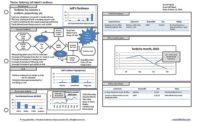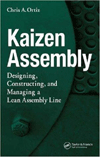Reward Proactive Action Over Firefighting




What is it about running in and saving the day, like in old Westerns, that individuals and companies enjoy? We may say that we would rather not have such drama on the shop floor, but all too often we set ourselves up for it in the end. Even if we do not make a conscious effort to reinforce emergency situations, we often take actions that actually reward the response to such crises.
The first thing we should acknowledge is that some emergencies are not knowable until we discover them or we can detect an emerging symptom. It is possible the emerging event is so subtle that our team cannot see it coming or cannot predict its impact until the point of full-on project crisis.
These events happen, but we have to wonder how many of these emergent events could have been foreseen or at least theorized as being possible. With such forethought, we could have implemented monitoring activities to detect the issue ahead of time, and we could have a plan in place to mitigate the issue should it come to pass.
Alas, an overburdened talent pool with too many projects or too heavy a workload can inhibit effective pre-emptive actions. How many times have you seen projects start off poorly because team members needed at the beginning are engaged in activities for other projects? The poor start to a project will have consequences. Similarly, office politics can often erode timely responses to emerging events.
There are things an organization does that can exert a great deal of influence on the system, even though that may not be the organization’s intention. Consider the concept of operant conditioning outlined by American behaviorist and psychologist B.F. Skinner. Operant conditioning is a type of associative learning process through which the strength of a behavior is modified by reinforcement or punishment. For positive reinforcement, we add a desirable input or stimulus to evoke or continue the desired behavior. For positive punishment, we add an undesirable stimulus to evoke or continue the desired response. Similarly, for negative reinforcement, we remove an undesirable input or stimulus, and for negative punishment, we remove a desirable stimulus.
It does not matter if we intend to reinforce or penalize a particular behavior. The only thing only matters is what is perceived by those affected by the action.
Too often, we reward our organization’s metaphoric firefighters in ways that can help perpetuate crises. We often laud, promote and even offer remuneration to those who have performed their firefighter routine. Can you recall an instance when somebody was praised when there was no metaphoric fire to clean up? Do we praise those who are focused and addressing problems proactively? We may use the phrase, “empower our teams,” to make proactive decisions, but do we act in full accord? Do we create an environment where that can happen?
Rather than reward extraordinary effort in fighting fires, we should incentivize proactive effort, anticipation and appropriate response to avert the issue before it can become a problem that will require a heavy, damaging effort. We should keep in mind the environment the organization creates and how that environment can encourage team members to behave more like firefighters and less like proactive planners who are focused on resolving issues early.
Looking for a reprint of this article?
From high-res PDFs to custom plaques, order your copy today!










